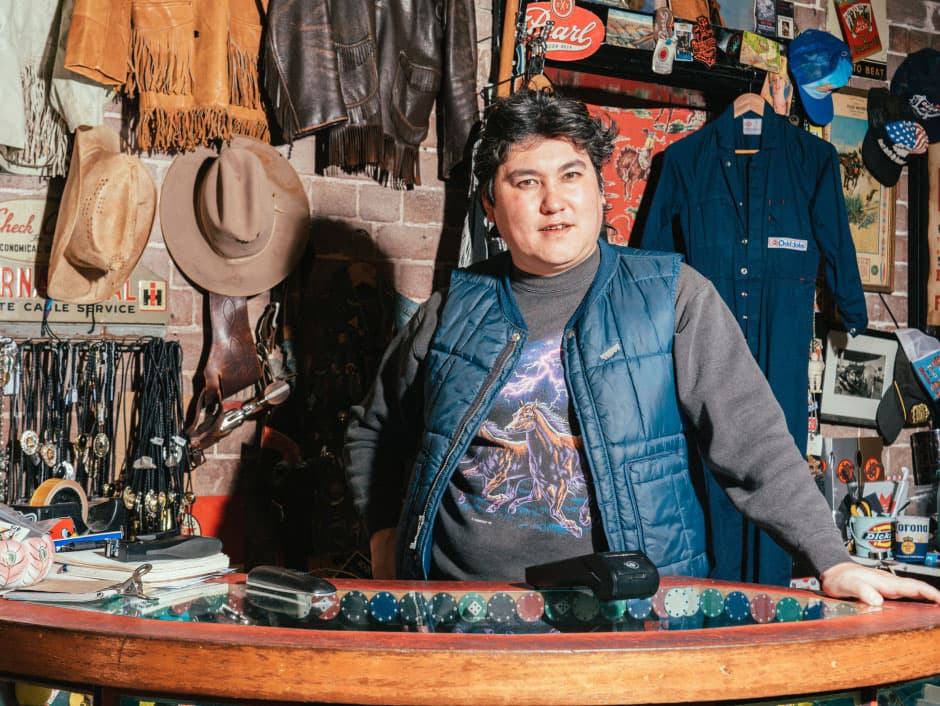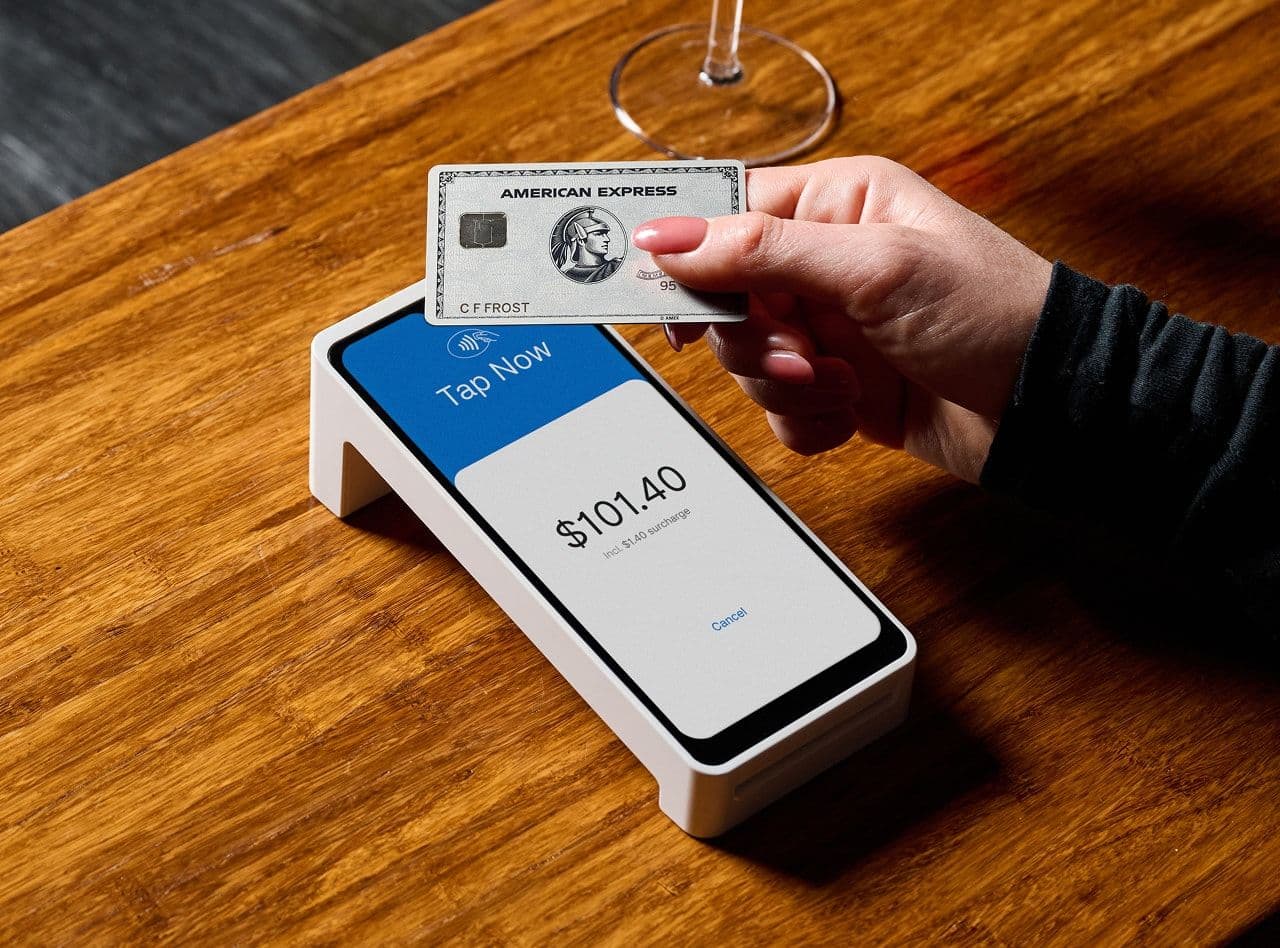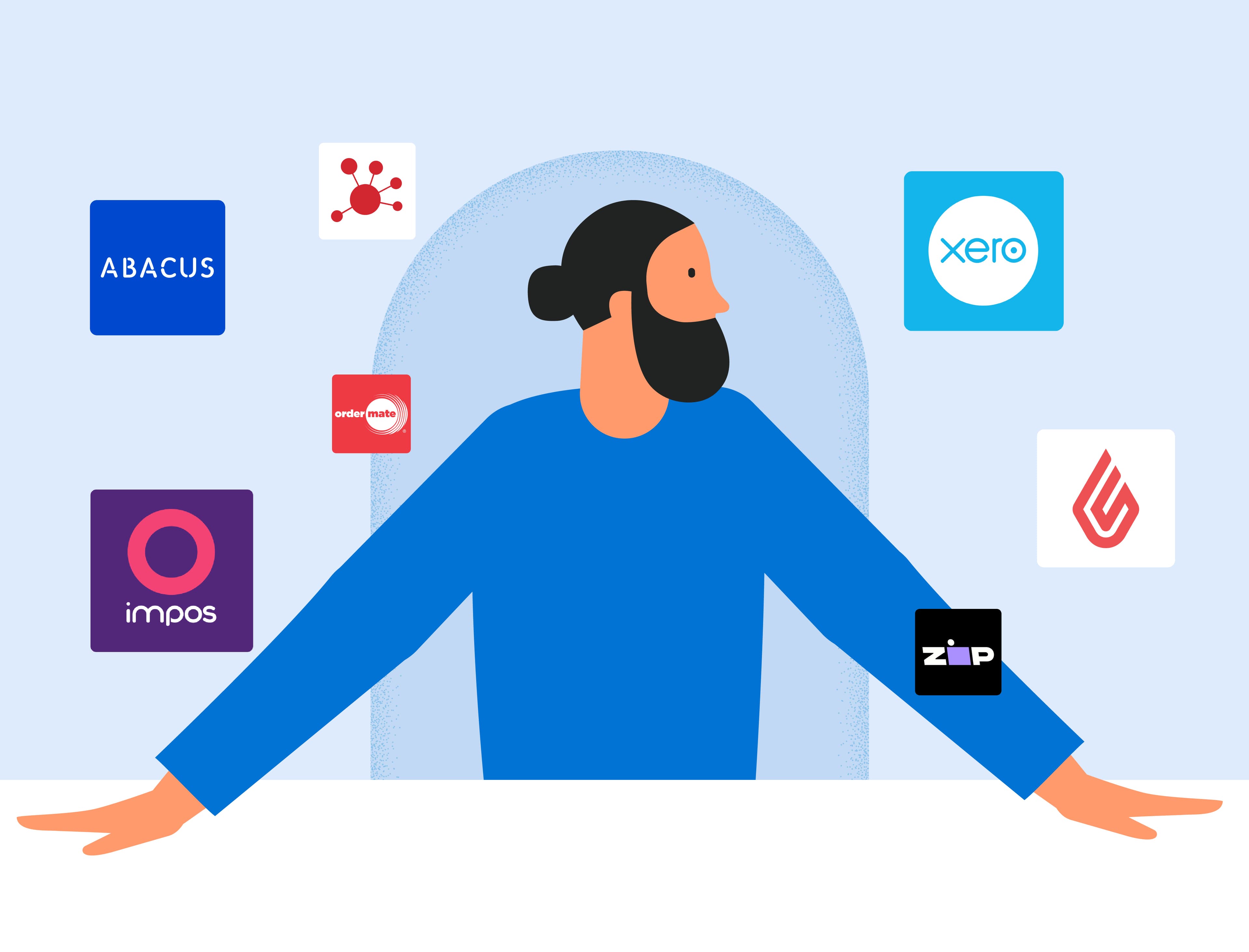
- Case Studies
Forever Young: How A Vintage Institution Keeps Thriving After Forty Years
If you were wearing a vintage pair of Levi's in the early '80s, there's a strong chance they were sourced by Tina Lowe and Ross Waddington.
The founders of vintage clothing store, Route 66, were arguably the first to bring second hand American fashion to Australia. Forging a community of devotees not just through clothing, but through the musical subculture it serves, the couple has created a 40-year legacy that continues to thrive in Sydney's inner west. Today run by their son Leroi, Route 66 has no plans of slowing. We sat down with Tina and Leroi to talk about selling old school fashion in the age of technology.
From America’s heartland to Greville St, Prahran.
Route 66 started on the eponymous mother road that crosses North America, connecting the East to the West. Cruising through beautiful grasslands and sun-scorched landscapes, Tina and Ross spent six months in their Chevy station wagon chasing swap meets and collecting vintage treasures through America’s heartland. Back in Melbourne they opened their first shop on Greville Street, Prahran. Far from the clean, gentrified image the street exudes today, the run-down highstreet of 1983 boasted cheap rent and a community of musicians, artists, students and hippies: a market primed for their haul of anti-fashion.
Route 66 was one of the very first retailers to introduce Australians to classic vintage American fashion, and helped change the public’s view on used clothing, which until this point was exclusively available at the Salvos or St Vincent de Paul. “I wanted to get people to understand buying vintage clothing. Clothing that’s been imported and selected as opposed to opp shop clothing. So I made sure that everything was absolutely clean, presented on really good hangers, and displayed really well” Tina explains.
Ross’s passion for American roots music, from pre-war blues to '60s garage, drew in even more people, helping to make this iconic store much more than just another clothing outlet. “It gave us a point of difference, by creating a sub-culture around the music we played. So, it became really popular and that’s what we became renowned for. It was about sharing the things we loved.” says Tina.
The winning sartorial strategy.
Following the overwhelming success of the Melbourne store — Tina moved to Sydney five years later, in the summer of 1988, to open Route 66’s second store on the iconic Crown Street strip in Surry Hills. Tina says it’s here that things really took off, in large part thanks to the Sydney-based magazines that featured them, but also owing to Tina’s more strategic approach, “In Sydney I started buying and mixing in new clothing with the vintage so that customers could buy a complete outfit. Because what’s difficult with vintage is finding the right sizing, especially with jeans and pants.”
Well before the ‘buy better, buy less’ mantra entered the common vernacular, Tina was championing timeless fashion. “It’s always been about finding that classic item that you’ll love forever, it’s not disposable fashion. That’s why even with the new stuff I try to select items that still have a vintage, timeless feel, you know like Levi’s 501s. So, I guess that's always been my concept without even really thinking about it, I just did it instinctively.






Retailing on the right side of history.
“I didn't think I was going to last this long” says Tina, “but now with this whole movement away from fast fashion, people are more aware. Buying vintage has become much more accepted and people actually feel better buying things that are not going to landfill.”
The growing environmental consciousness has led to a boom in the pre-loved clothing industry: a study by Reluv reported that about 75% of Australians purchased secondhand clothing last year. Yet even with this growing trend towards sustainable fashion, Tina knows they can’t rest on their laurels, “We still have to stay on top of a certain style, we can’t just sell any old second-hand clothes.”
At Route 66, each piece is hand-selected, cleaned and pressed, offering customers not only a collection of unique styles from eras gone by, but garments that have and continue to stand the test of time. “I love it when someone comes in and they've had their favourite jacket or pair of jeans for the last 10 years, I think that's fantastic” says Tina.
Old threads meet new technology.
Boasting the biggest supply of second hand 501 Levi’s in all of Sydney does indeed come with its difficulties. “With the dollar fluctuating all the time and shipping costs going up, that’s really very challenging. Not to mention rent and everything else that’s going up” explains Tina.
To combat rising prices and streamline their operations, Route 66 has been using Zeller Terminal since April 2022. “I'm so old school, I used to do everything on paper… But I’ve found Zeller has made taking money so much easier, and having a record of it. I can log in at any time to see how they're doing at work. Which is really fantastic, I couldn't do that before” explains Tina. Additionally, being able to track sales has allowed them to optimise their rostering, “We can see what days are the busiest during the week, and make comparisons... it’s really good to be able to check when it’s busy when you're not there” explains Leroi.
Having a system that can easily support refunds, work wirelessly, and provide additional branding also proves to be a boon for any business dealing in vintage wares, “if something breaks, I can refund someone and it’s very easy to do” says Leroi, “and it's great that it’s got a SIM card in it so I can go anywhere with it, which is very handy when we’re doing a market or an event. Plus having the logo on the receipt makes it a bit more individual.”

Invest local, think global.
When Ross passed away in 2011, it marked the end of Route 66’s presence in Melbourne. However his son Leroi has his sights set on reopening a second store in the brand’s founding city within the next few years. Until then, he is focusing on growing the online business and getting more people through the door in Newtown.
Following the legacy that helped build the brand’s profile in the '80s, Leroi has been organising music events and free shows in-store: an out-of-the-ordinary marketing tactic that’s paying dividends. “The council helps us out a bit with putting on live music and then we partner with Young Henrys and Heaps Normal to provide the drinks. It helps to build a bit more of a community vibe.” And it’s not the only way Route 66 is investing back into the community, they regularly donate gift vouchers at the local pub’s spin-the-wheel competition to further embed their brand name into the local culture.
In conjunction with an active Instagram presence, Route 66 has successfully built more than just a brand, it’s built a cultural institution, “We mostly get returning customers” says Leroi, “there are a lot of artists or musicians who hang around the area, and they’ll always pop in.” Paradoxically, by investing so heavily in their community and supporting the local arts scene they’ve garnered a loyal network of followers that extends much further than their postcode, “We get people coming in from Melbourne or interstate or even overseas… the Instagram presence makes a big difference."

For a business dealing in old school clothing, Route 66’s approach to retail is far from dated. Keeping their offering fresh and accessible, fostering a community and embracing new technology have kept the Waddington’s family business alive and thriving for over four decades. A winning combination that you might just say, is the road to success.
To read about other Australians growing their businesses with Zeller, head to the Zeller Business Blog and sign up to our newsletter to receive stories straight to your inbox.



